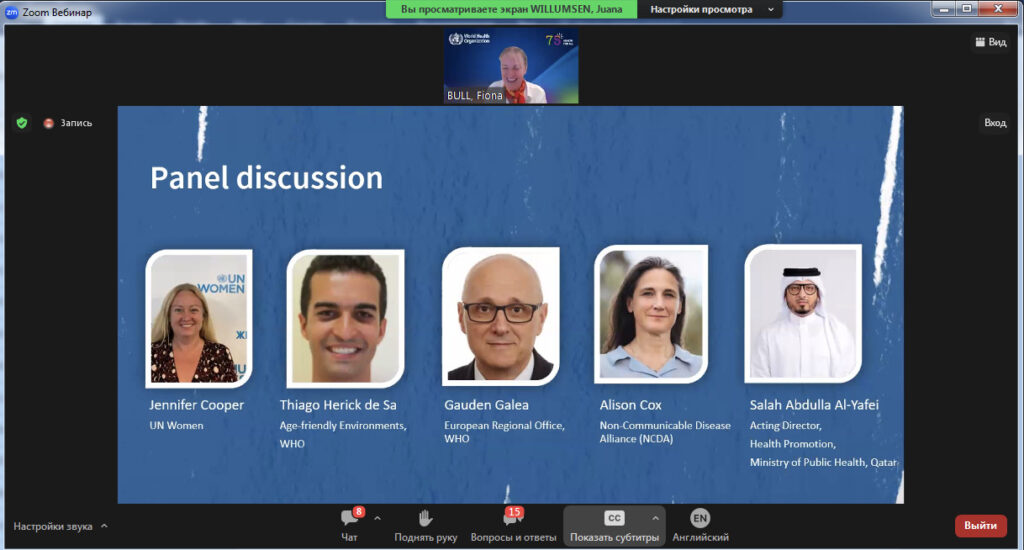July 2-3, 2024: WHO organized a webinar to discuss the new global estimates of physical inactivity in adults

On July 2-3, 2024, a webinar organized by WHO was held to discuss the new global estimates of physical inactivity in adults based on the results of the data published on June 25, 2024 in the Lancet Glob Health by Tessa Strain, Seth Flaxman, Regina Guthold, Elizaveta Semenova, Melanie Cowan, Leanne M Riley, Fiona C Bull, Gretchen A Stevens, and the Country Data Author Group “National, regional, and global trends in insufficient physical activity among adults from 2000 to 2022: A pooled analysis of 507 population-based surveys with 5.7 million participants,” Lancet Glob Health 2024 Published Online June 25, 2024 https://doi.org/10.1016/S2214-109X(24)00150-5 (National, regional, and global trends in physical inactivity among adults from 2000 to 2022: a pooled analysis of 507 population-based surveys with 5.7 million participants).
Comparable data were presented worldwide for nine groups of countries (197 countries) with age and sex estimates and trends for 2000-2022, and for the first time, a projected estimate for 2030 was provided.
The issues of trends in the prevalence of physical inactivity among men, women, and people of different ages were discussed in detail.
It was determined that the age prevalence of physical inactivity was 31.3%, with a sharp increase after 60 years, especially in women, and could reach an increase of 35% in 2030 compared to 2010. It was found that 52% of countries have an upward trend in prevalence.
The global goal for the prevalence of physical inactivity among adults is a crucial one, aiming to reduce it by 15% by 2030. This goal should motivate and guide our collective efforts in the coming years.
Six main areas of activity were established at the state and local levels to reduce the spread of physical inactivity.
The event was attended by Alla Koblianska, Head of the Department of the Support of State Programs and International Relations, Candidate of Medical Sciences, on behalf of the State Institution “Marzieiev Institute for Public Health of the National Academy of Medical Sciences of Ukraine.” The information received is useful for the further development of international cooperation of the Institute’s scientists.